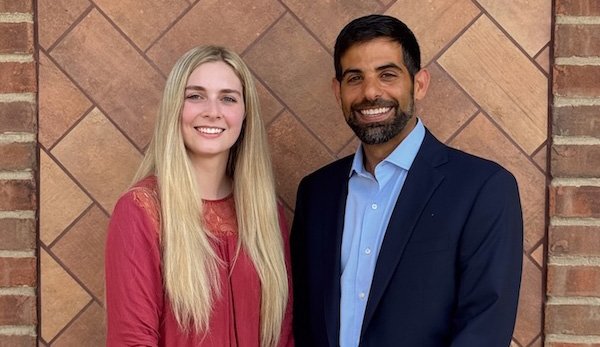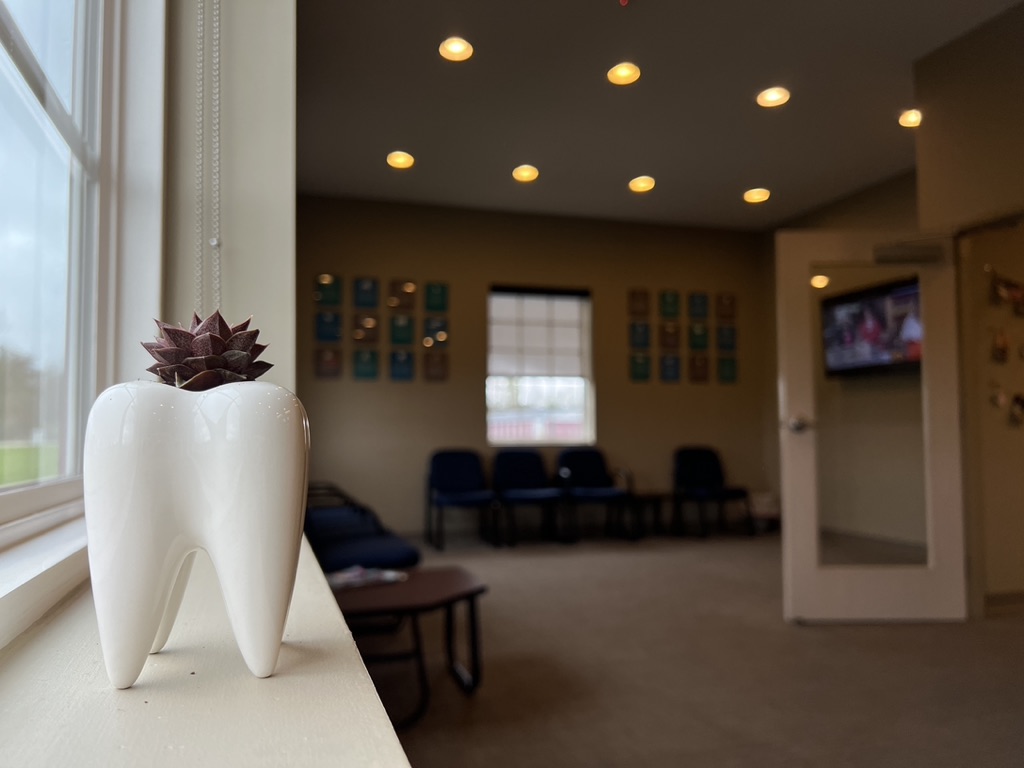Fillings

At Anthony Dental Care, we place a strong emphasis on preventive dentistry and strive to help all of our patients from developing any oral health problems. However, sometimes, issues, such as dental cavities, can still occur.
When our patients develop oral health concerns, our experienced team is here to help address and resolve the issues with comprehensive restorative dental treatments. Among these treatments, one of the most commonly recommended is a dental filling.
What are Cavities?
Cavities are holes caused by tooth decay that go down below the surface of your tooth. Naturally occurring bacteria in your mouth leave behind plaque, a substance that causes tooth decay. Left unchecked, cavities will continue to grow, causing more serious damage to your teeth. If ignored, they might even become infections of the soft material inside your tooth that necessitate a root canal.
If you have a cavity, you are not alone. A majority of people get at least one throughout their lives. The important thing is to get it treated with a filling — and to try to prevent future cavities from developing through good dental hygiene habits.
How do Fillings Help Address Cavities?
Fillings are an essential component of dental care. They clear out damaged material and protect your tooth from further decay. Getting a filling as soon as you realize you may have a cavity can prevent the condition from becoming worse.
What are Signs That a Filling may be Necessary?
In general, we will be the ones to tell you whether you might need a dental filling. However, there are some signs and symptoms that might give you an early indication that treatment might be necessary. If you experience any of the following, don’t delay — call us to schedule an appointment:
- Pain: If you have a toothache with no clear sign of what might be causing it, the pain could signal that you have a cavity. Likewise, if you feel pain when biting or chewing, it’s time to call us.
- Sensitivity: Aching in your teeth when you eat or drink hot or cold food and beverages may also signify cavities.
- Visible damage: If you see holes or pits in your teeth, you may see a cavity. Even if you have doubts, it’s worth getting checked out — early repair of any damage to your teeth is better than bigger repairs later on from ignoring the issue.
- Stains: If your teeth have stains that will not scrub off when you are brushing your teeth, you might have cavities.
During each routine dental examination, we carefully and thoroughly examine the surfaces of your teeth, looking for signs of cavities or soft spots on your tooth enamel (the earliest stages of tooth decay).
If we detect soft spots, we will discuss the actions you can take to remineralize your teeth and reverse this stage of tooth decay. Treatments for soft spots typically include professional fluoride treatments and prescription-grade toothpaste that contains a higher concentration of fluoride.
If we detect cavities during a routine dental examination, we can discuss the treatment process with you and will likely schedule you for a separate appointment to have your cavity treated.
The Process of Getting a Dental Filling
Dental fillings are fairly simple dental procedures, and they are performed routinely. We begin by administering a local anesthetic that ensures you won’t feel any pain or discomfort during your treatment.
Once adequately numbed, we can begin the process of drilling and cleaning your tooth. The dentist uses a special dental tool to drill the tooth around the site of the cavity. This step ensures the removal of any dead, diseased, or infected tissues that could lead to further decay or infections in the future. We then clean the drilled area to ensure all bacteria have been sterilized.
Once cleaned and dried, we fill the cavity in the tooth. The material and process used to fill a cavity can vary somewhat, depending on the size of the cavity and the size of the filling needed. For smaller or more average-sized cavities, the tooth-colored composite resin is generally used to fill cavities. The resin is dyed to match the color of the surrounding tooth so that the dental filling blends in seamlessly for a natural look.
Once filled, we set the resin using a special light. This final step completes the treatment, and our patient is then ready to return to their regular daily activities.
How are Cavities Prevented?
You don’t have to resign to a future full of cavities and fillings. You can take steps to keep your mouth healthy and free from cavities. The biggest help you can give yourself is healthy dental hygiene habits. Brush your teeth at least twice daily with fluoride toothpaste, and floss daily. When you can’t brush your teeth after eating, rinse them with water. Overall, avoid snacking throughout the day, and limit your intake of sugary beverages like sodas.
We are your next best bet to prevent cavities. Attending regular dental appointments — once every six months for most patients — is essential to giving your teeth the deep clean they need to prevent cavities. We will also keep an eye on any developing issues to coach you on your brushing and flossing and head off any problems before they get serious.
Do you suspect you may need a filling? Schedule your appointment at Anthony Dental Care today.
Additional Cavity Prevention Tools and Treatments
To help prevent cavities during your routine dental examination and cleaning, you can also talk with our dentist about additional preventive treatments that might be available to you, such as fluoride treatments and dental sealants, and whether they might be right for you.
Both dental sealants and professional fluoride treatments are quick and painless. They can be administered and/or applied during your regular dental exam.
Fluoride Treatments
Fluoride treatments apply super-concentrated fluoride to the surfaces of your teeth to help remineralize and strengthen your tooth enamel. They come in a variety of flavors and formulations including gels, foams, and varnishes.
Dental Sealants
Dental sealants are comprised of a thin layer of tooth-colored composite resin that is painted onto the chewing surfaces of a patient’s permanent molars and then set using a special light.
Dental sealants not only seal the tooth’s chewing surface to protect it from bacteria and tooth decay, but they also smooth out the tooth’s surface making it easier to keep clean. We strongly recommend dental sealants for patients of all ages who still have their natural molars.
Schedule Your Next Dental Exam and Cavity Screening Today
If you suspect you may need a filling or if it has been six months or more since your last dental examination, then you are due for a dental appointment. In addition to professionally scaling and polishing your teeth, we will thoroughly examine your mouth for signs of dental cavities, tooth decay, and other oral health concerns. As with most health issues, early diagnosis and detection ensure the simplest course of treatment.
To learn more about dental fillings and preventive dental care or to schedule your appointment at Anthony Dental Care, we welcome you to contact our office today.

 View Sunbury Location
View Sunbury Location View Centerburg Location
View Centerburg Location View South High Location
View South High Location




